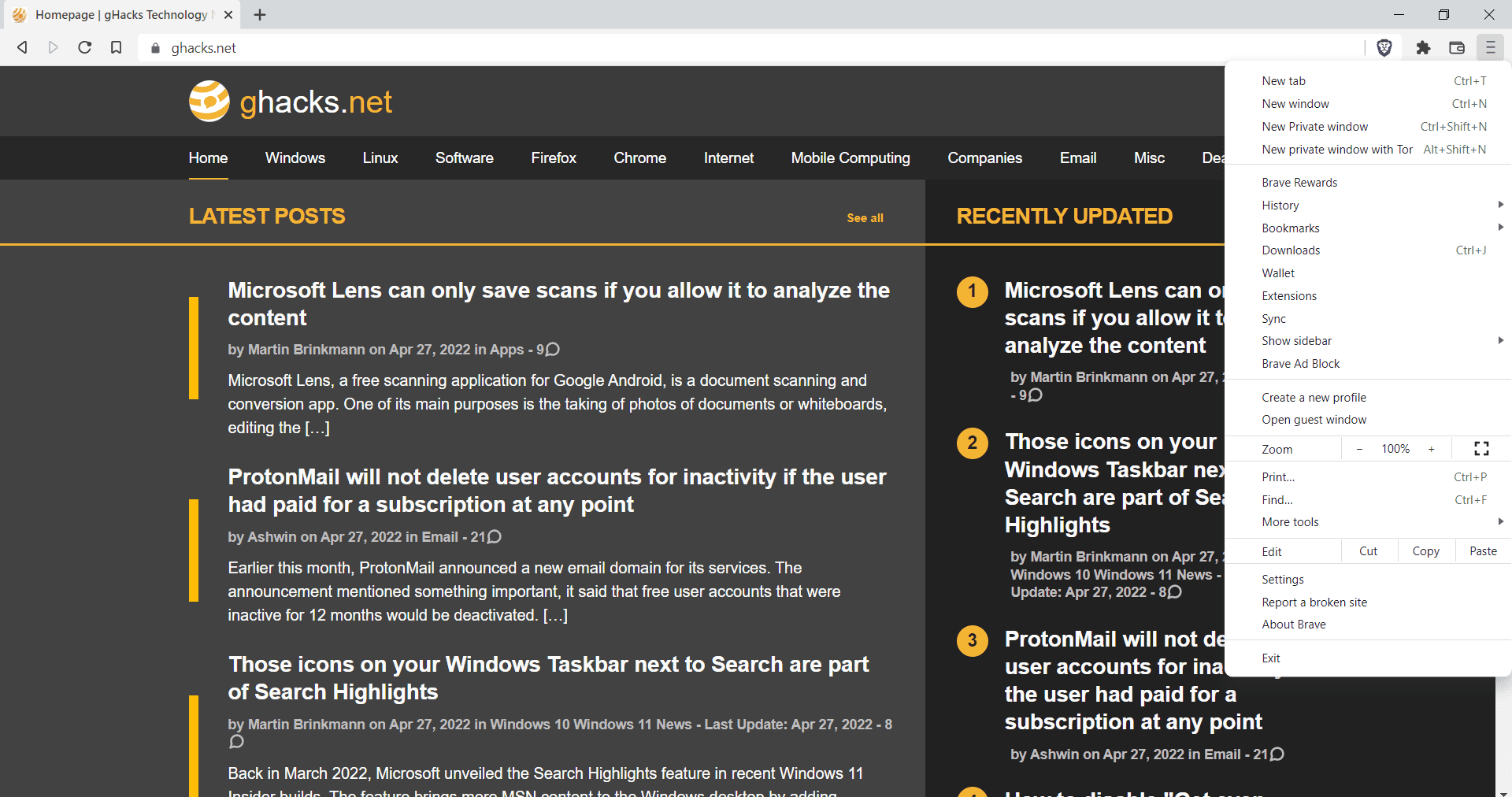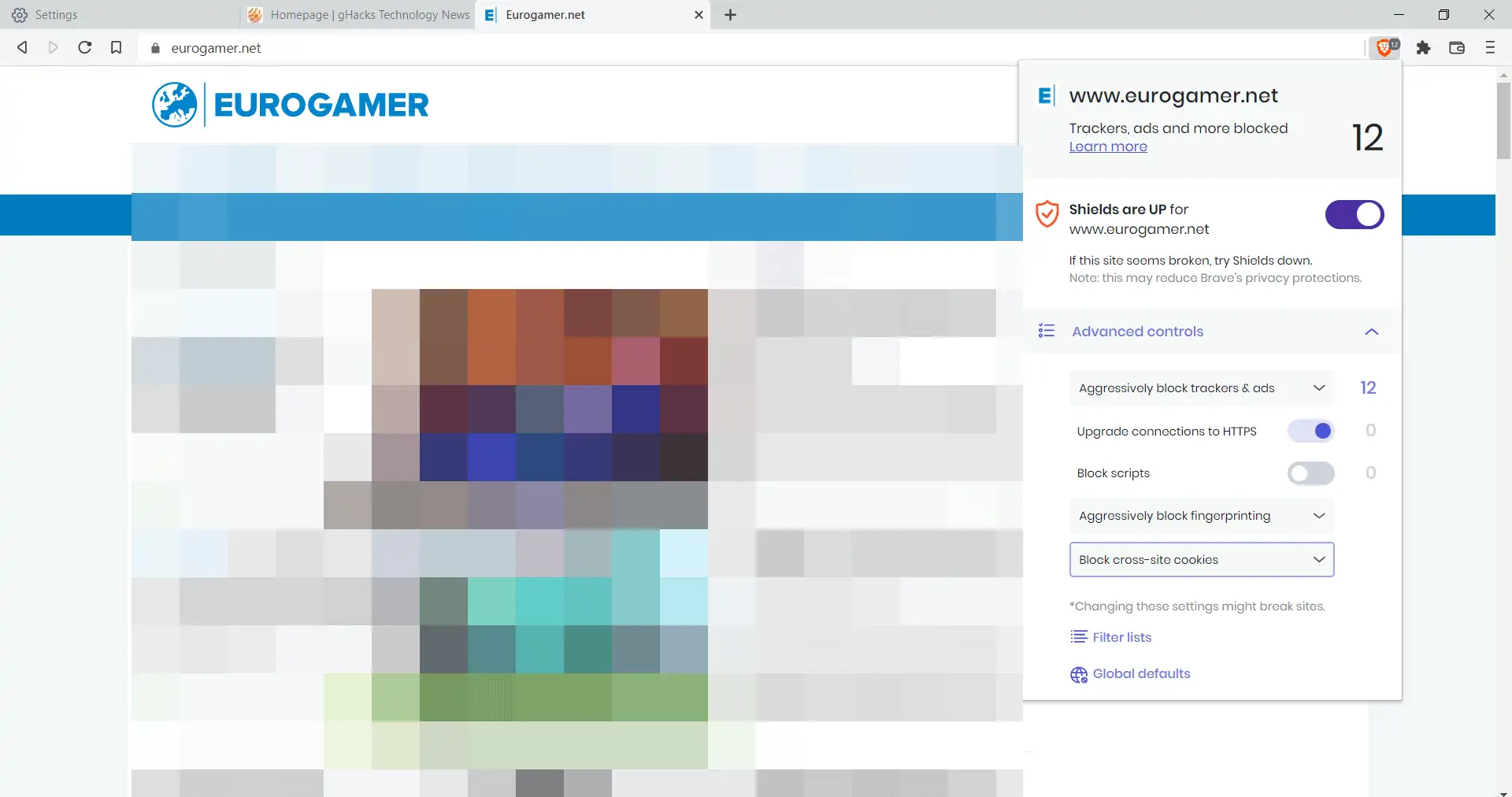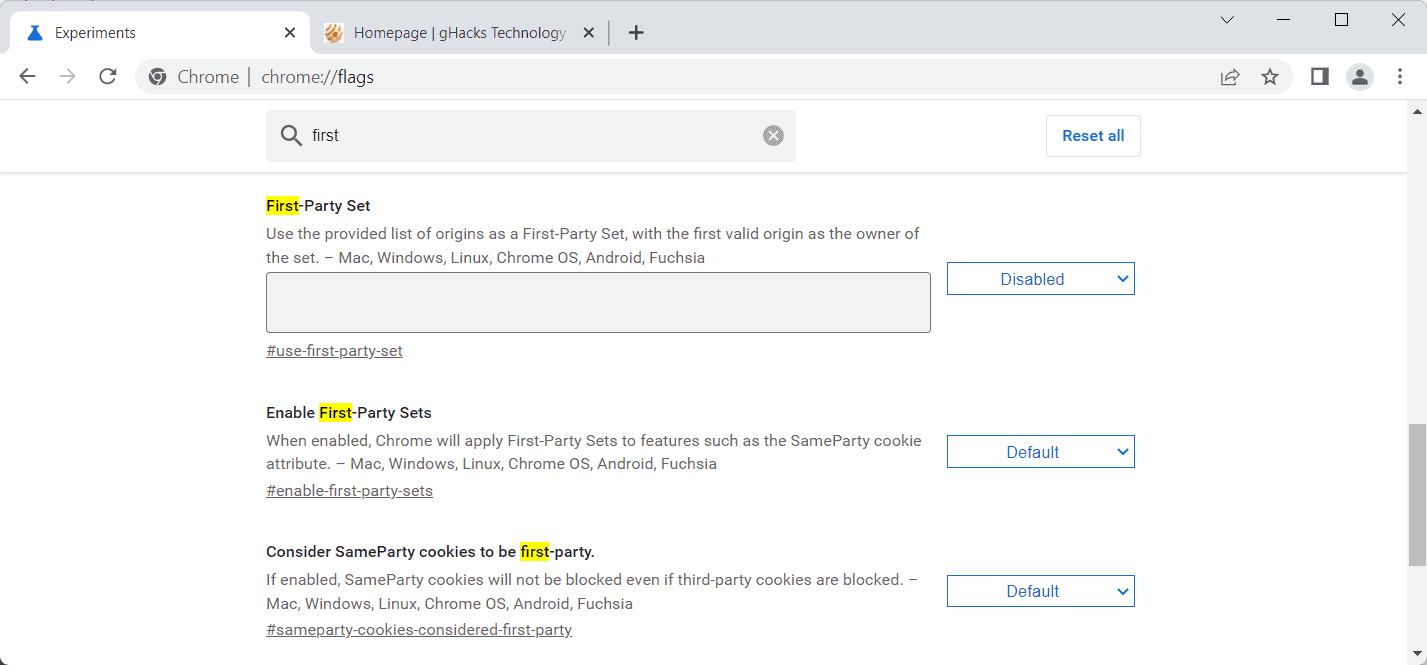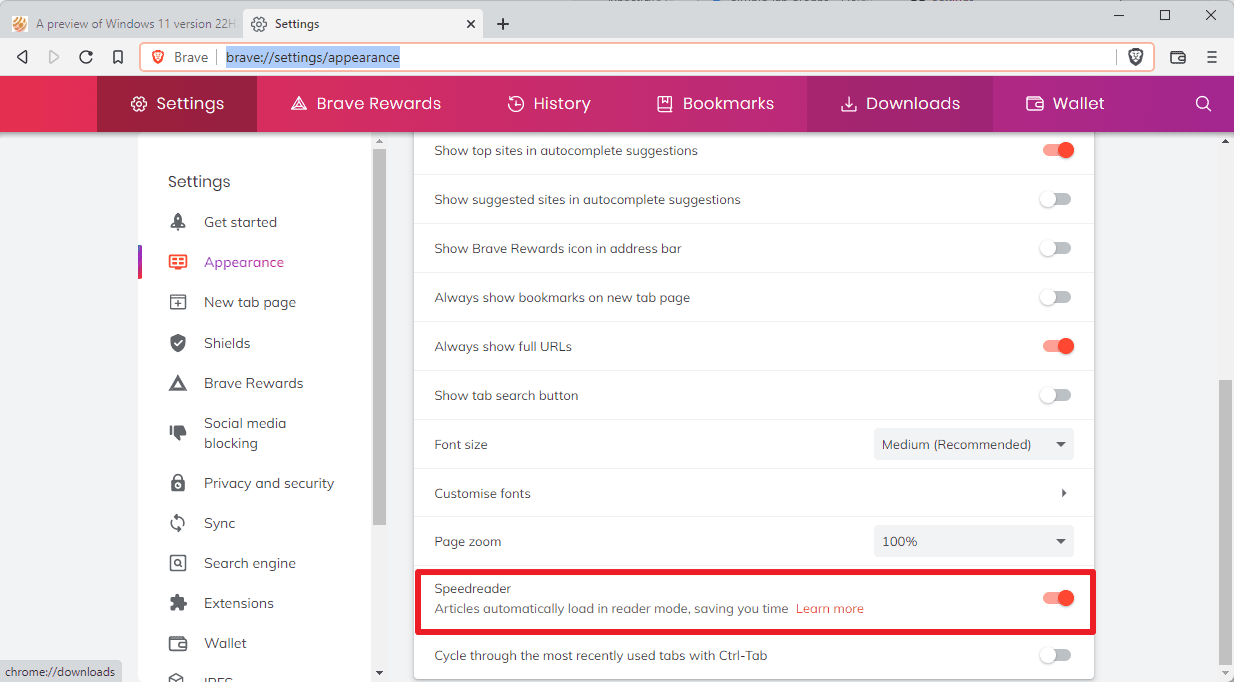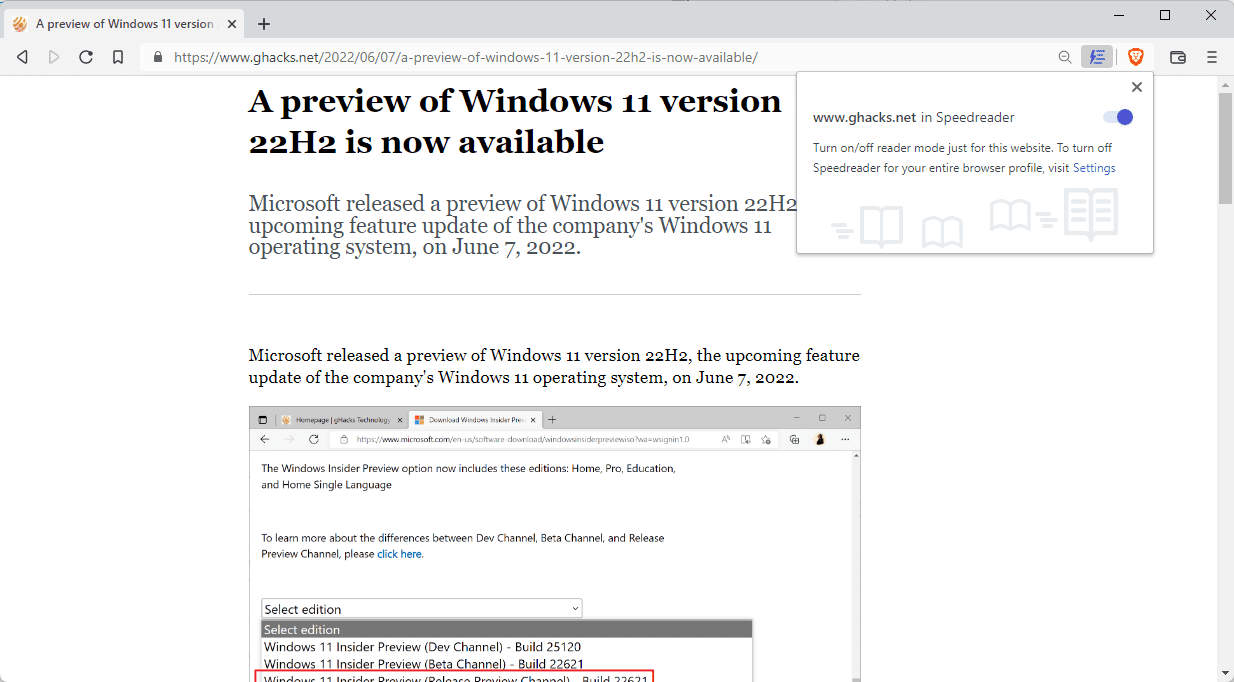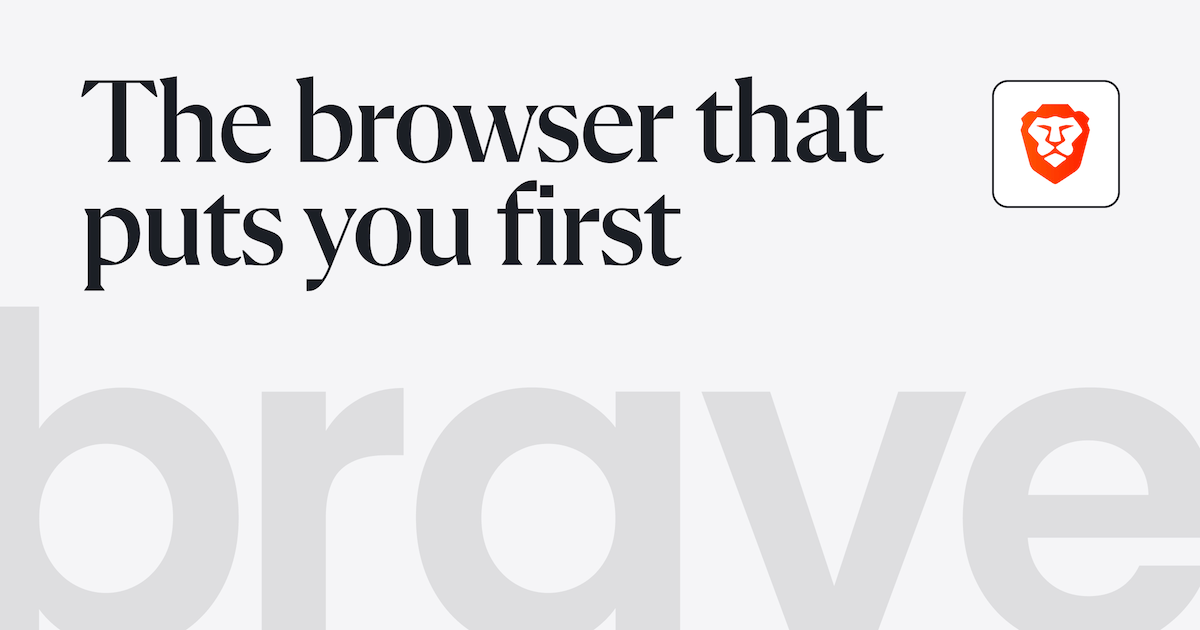Brave Software, maker of the Brave browser, joined Mozilla recently in declaring first-party sets an anti-privacy feature. Brave Senior director of privacy, Peter Snyder, pointed out on the official blog that the adoption of the feature would make it harder for "user-respecting browsers to protect their users' privacy".
First-Party Sets will allow more sites to track more of your behavior on the Web, and make it more difficult for users to predict how their information will be shared.
Snyder believes that Chrome's dominance will likely lead to the implementation of the feature in other browsers to "maintain compatibility with the Web". Chrome has a market share of over 60% and many browsers are using the same source as Chrome already. The two main exceptions are Apple's Safari and Mozilla's Firefox web browser. Other browsers, including Microsoft Edge, Brave, Vivaldi or Opera, use Chromium as the source.
First-party sets enable the tracking of users across properties that organizations and individuals own. Google could declare most of its properties a first-party set; this would mean that if a user is known on google.com, it is also known on any other site of the first-party set, even if that site was never visited or is visited for the first time.
Google would know about the user who visits YouTube, Blogger, or Alphabet.com for the first time, provided that these domains would be in the same first-party set. Worse still, according to Snyder, users would have no control over the mechanism.
Google is arguing that first-party sets is improving privacy, as it paves the way for removing support for third-party cookies in the browser. Snyder argues that first-party sets is not a privacy feature, but one designed to "ensure companies can continue to identify and track people across sites".

 community.brave.com
community.brave.com

